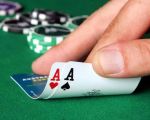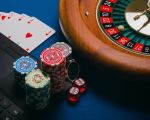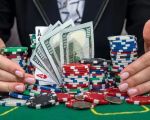- 1‑understanding-blackjack-mathematics-and-odds
- 2‑mastering-basic-strategy-as-your-foundation
- 3‑the-power-of-card-counting-and-how-to-use-it-smartly
- 4‑real-player-stories-what-pros-and-regulars-have-learned
- 5‑psychology-bankroll-and-table-dynamics
- 6‑getting-ahead-with-tools-guides-and-casinoscope
1. Understanding Blackjack Mathematics and Odds
Before you can figure out how to increase your chances of winning at blackjack, you need to grasp the game's built-in mathematics. Blackjack is one of the few casino games where the house edge can be minimized—down to 0.5%—if you play correctly. But most players don’t, and casinos count on that.
The game hinges on probability. Each decision you make—hit, stand, double, split—can either move the odds closer to you or farther away. For example, standing on a hard 16 against a dealer’s 10 is statistically better than hitting it, though emotionally it feels riskier. It’s not just chance; blackjack is skill layered over luck. When you understand these odds, every decision becomes more intentional and less impulsive.
2. Mastering Basic Strategy as Your Foundation
If there’s one thing every serious player must learn, it’s the blackjack basic strategy. This isn't a hack—it’s a mathematically derived system that tells you the best play in every hand scenario based on your cards and the dealer’s upcard. It answers questions like “Should I hit 12 vs. dealer 3?” or “Do I split 9s against 7?”
By consistently applying basic strategy, you immediately improve your odds. In fact, failing to use it is the most common mistake amateur players make. You don’t need to memorize all 300 combinations overnight. Start with soft totals and hard totals below 17. Use pocket strategy cards if you must—many casinos allow them at the table.
This foundation is not optional if you’re asking seriously how to increase your chances of winning at blackjack. Like grammar in writing, it doesn’t make you Shakespeare, but without it, you're lost.
3. The Power of Card Counting and How to Use It Smartly
Let’s get into what movies love dramatizing—card counting. It's not illegal, just frowned upon by casinos. Card counting is tracking the ratio of high to low cards remaining in the deck. When the count is high (more face cards remain), you increase your bet; when it’s low, you bet minimums. This gives you a slight edge over the house.
There are many systems, like Hi-Lo or Omega II, but Hi-Lo is the easiest to learn and still powerful. It assigns a +1 to low cards (2–6), -1 to high cards (10–Ace), and 0 to the rest. Keep a running count and divide by decks remaining for a “true count.” Sound intense? It is—but even moderate counters can improve win rates with practice.
A regular at the Mohegan Sun once told me he funded a trip to Tokyo by card counting small stakes $10 tables for six months. He didn’t get rich, but he played smart. Remember: don’t draw attention. Vary your bets subtly and act naturally. If you get heat from pit bosses, switch tables or walk away.
4. Real Player Stories: What Pros and Regulars Have Learned
To make it real, here’s what some blackjack veterans have shared about how to increase your chances of winning at blackjack through practical experience:
Emily from Chicago: “I always thought luck was everything—until I tracked my own hands and realized I was giving up nearly 2% edge by not following basic strategy. After correcting that, my losses slowed, and sometimes, I even came out ahead.”
James, Vegas local: “It’s about discipline. I use card counting but never chase losses. I walk after two bad shoes and come back later. Emotion ruins good math.”
Tina, online blackjack enthusiast: “Playing online taught me to master strategy charts, and I test new tactics with virtual chips first. Some online casinos offer better payout rules too—blackjack pays 3:2 versus 6:5 at many tables.”
The takeaway? Blackjack rewards consistency, discipline, and knowledge—not hunches or “lucky streaks.”
5. Psychology, Bankroll, and Table Dynamics
Your mindset plays a massive role. Even the best strategy fails if you’re chasing losses or emotionally attached to one “lucky seat.” Here’s what seasoned players recommend:
- Set a win/loss limit: If you’re up 30%, consider walking. If you lose your session bankroll, stop. Don’t dip into your pocket again.
- Table selection matters: Look for tables that pay 3:2 on blackjack, allow doubling after splits, and limit decks (prefer 1–2 decks).
- Watch other players: Avoid sitting with people who are wildly inconsistent—it messes with card flow, especially in small-deck games.
I once played with a guy who split 10s against a dealer’s 6. Everyone groaned. It changed the table’s run for the next shoe, and we all walked within minutes. Blackjack is a solo game, but the table dynamic affects your outcomes too.
6. Getting Ahead with Tools, Guides, and CasinoScope
So how do you put it all together and keep growing? That's where trusted resources come in. Sites like CasinoScope provide regularly updated strategy charts, expert-tested casino guides, game reviews, and even training modules on topics like card counting and bankroll management.
Instead of trial and error at your own expense, use tools that pros recommend. Want to know which casinos offer the best rules in Vegas or online? CasinoScope keeps those lists updated weekly. Interested in apps that help you train basic strategy? They’ve reviewed the top ones based on accuracy and ease of use.
If you're serious about how to increase your chances of winning at blackjack, start treating your play like a skill—not entertainment. Use resources, track performance, and stay informed. CasinoScope is where skilled players go to refine their edge and stay ahead of the game.
Want to win more consistently at blackjack? Discover your next strategy tool, pick the right table, and level up your game with the insights waiting for you at CasinoScope. Your seat at the table is ready—just bring the right skills.








